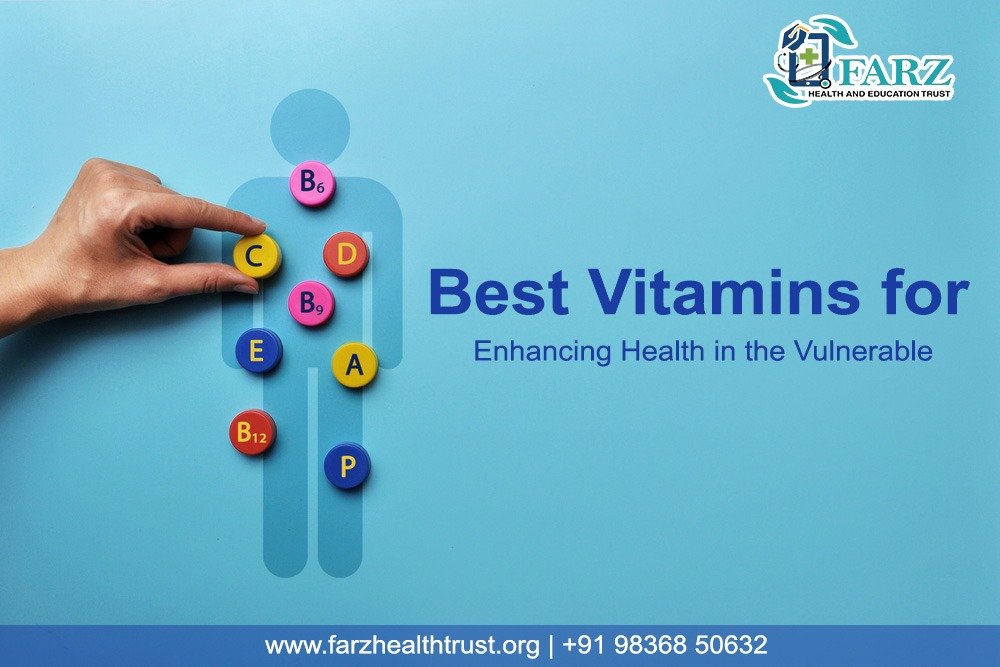
Maintaining optimal health is crucial, especially for vulnerable individuals. Their immune systems are often weaker, making them more prone to illness. Fortunately, vitamins play a significant role in boosting overall well-being. Below, we will explore the most important vitamins for enhancing health in these individuals.
The Importance of Vitamin D
Firstly, Vitamin D is essential for healthy bones and teeth. It helps the body absorb calcium more efficiently. Many vulnerable individuals, such as the elderly, may lack exposure to sunlight. In such cases, Vitamin D supplements become necessary. Deficiency can lead to weakened bones, increasing the risk of fractures. In addition, Vitamin D is believed to improve immune function.
Why Vitamin C Should Be Prioritized
Moreover, Vitamin C has long been known for its immune-boosting benefits. Found in citrus fruits, this vitamin is an antioxidant that protects the body’s cells. Those who are vulnerable to illnesses often require more Vitamin C than the average person. Consistent intake of this vitamin can help prevent frequent infections. Not only is it beneficial for immunity, but Vitamin C also aids in wound healing.
Learn more about Top Methods to Regulate Blood Pressure
The Benefits of Vitamin B12
Similarly, Vitamin B12 is important for keeping the nervous system healthy. It is mostly found in animal products, making it harder for vegans and vegetarians to obtain. For older adults, absorption of Vitamin B12 is often impaired, requiring supplementation. Its deficiency can result in fatigue and weakness, which makes it even more important for vulnerable populations. Furthermore, it helps with red blood cell production.
The Role of Vitamin E in Health
Additionally, Vitamin E acts as a powerful antioxidant. This vitamin protects cells from damage and may reduce the risk of chronic diseases. Those with weakened immune systems will benefit from Vitamin E’s protective properties. Furthermore, it helps maintain healthy skin and eyes. Despite being available in nuts and seeds, supplements may be needed for those who don’t consume these foods regularly.
Why Folic Acid is Vital for Health
Folic acid, or Vitamin B9, is another vitamin that should not be overlooked. It is particularly important for pregnant women to prevent birth defects. However, it also plays a significant role in the overall health of others. Folic acid supports DNA production and helps with cell division. It is crucial for those who have weakened bodies and need extra cellular support. Consequently, it may reduce the risk of anemia and promote a healthy brain.
Omega-3 Fatty Acids: A Helpful Addition
Omega-3 fatty acids, while not a vitamin, deserve mention. These essential fats are vital for heart health. They help reduce inflammation, which is particularly beneficial for individuals with chronic conditions. Omega-3s can be found in fatty fish like salmon or in supplements. Consuming these healthy fats may improve cognitive function and reduce the risk of heart disease. Vulnerable groups, especially older adults, are often advised to take Omega-3s.
How to Include Vitamins in Your Diet
Incorporating these essential vitamins into a daily routine is easier than it seems. For starters, eating a balanced diet rich in fruits, vegetables, and whole grains is recommended. However, supplements may be needed when food sources are insufficient. For instance, those with dietary restrictions or medical conditions might require more targeted supplementation. It’s always advised to consult a healthcare provider before starting any new vitamin regimen. This ensures that the correct dosage is taken.
Conclusion
In conclusion, vulnerable individuals can significantly benefit from essential vitamins like D, C, B12, and E. Additionally, folic acid and Omega-3 fatty acids offer much-needed support for heart, brain, and immune health. While a balanced diet is key, supplements may be necessary for some. Before starting a new supplement, consulting a healthcare professional is always a wise step. By taking these measures, overall health and immunity can be enhanced for those who need it most.
